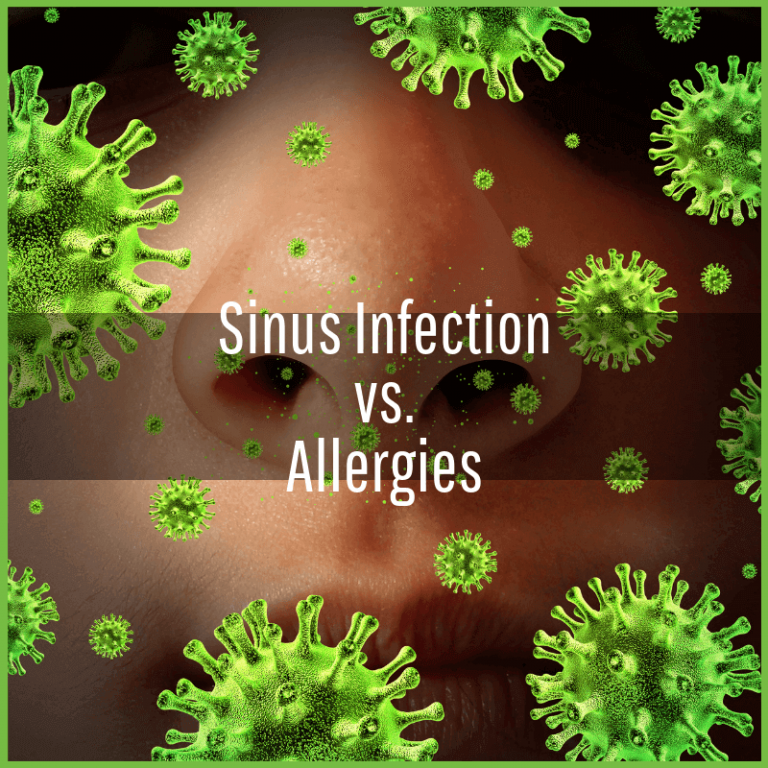How To Know if You Have a Sinus Infection or Just Allergies

With the summer season finally changing and the weather cooling off, it is a peak time for allergies, sinus infections and more. But how do you know which is which? When their symptoms present similarly, these afflictions can be hard to self-diagnose and self-treat. Fortunately, as a leading practice in rhinology, we have tips on how to distinguish pesky allergies from a stubborn sinus infection.
Sinus Infections
A sinus infection (sinusitis) causes your nasal cavities and passages to swell and become inflamed. This swelling makes it hard for your sinuses to drain as they normally would, causing a build-up of mucus. This is what causes you to become congested and have difficulty breathing through your nose. A clear symptom of a sinus infection is a thick green or yellow discharge from your nose. A sinus infection may also present with a sore throat, cough, headache, and pressure tenderness around your nose, cheeks, eyes or forehead.
Most often, sinus infections are caused by a virus and last for about ten days. You can care for a sinus infection with lots of rest and fluids. Over the counter painkillers and decongestants can offer some relief as well. Sometimes, sinus infections are caused by bacteria but present the same symptoms. If a bacterial sinus infection persists for more than two weeks, you may need to see a doctor for antibiotics.
Allergies
While allergies can produce similar symptoms as a sinus infection—like sinus pressure, a runny nose, and congestion—it is a completely different problem than a sinus infection. Allergies, or allergic rhinitis, are caused by environmental allergens, such as dander, pollen, or dust mites. Being allergic to these factors causes your immune system to release histamine, which can cause allergy symptoms to present.
One of the best ways to distinguish allergies from a sinus infection is itchy, watery eyes. Eye itchiness is very rarely a symptom of a sinus infection. Additionally, allergies rarely produce thick green or yellow nasal discharge, like a sinus infection almost always does.
Additionally, the time of the year can also help you determine if your symptoms are allergy or sinus infection related. If you know you are allergic to certain seasonal problems—such as pollen or spores—you know that in the spring you may be suffering from tree pollen allergies, in the summer grass pollen or mold allergies, and in the fall ragweed pollen allergies.
Allergies can be treated with over the counter medications such as antihistamines and nasal corticosteroids.
Seek Assistance from a Board-Certified Physician
If you are still unsure about whether or not you have a sinus infection or allergies, consult with a physician like Dr. Kuperan who can help you determine what is causing your symptoms and come up with a plan for treatment. Call 832-720-NOSE (6673) to schedule a consultation.


